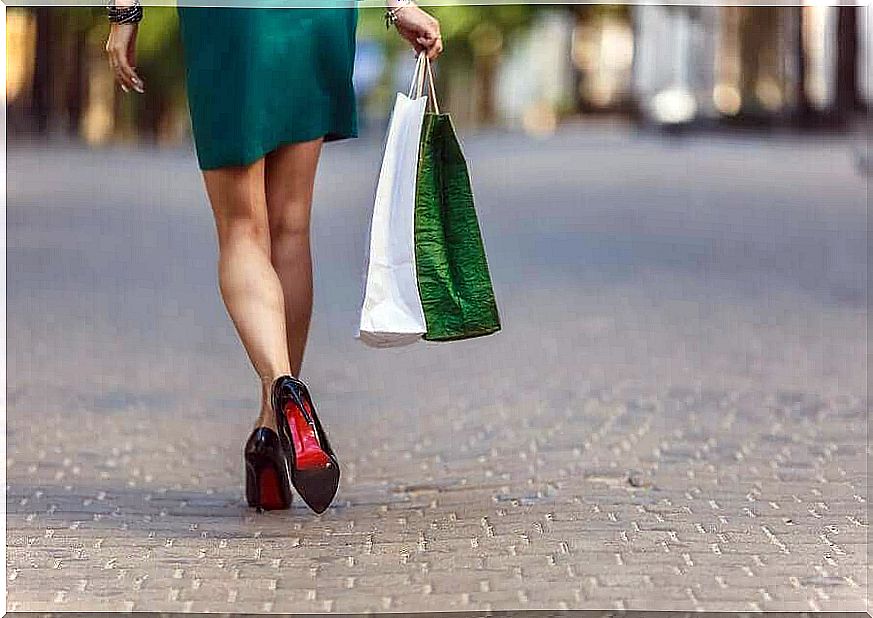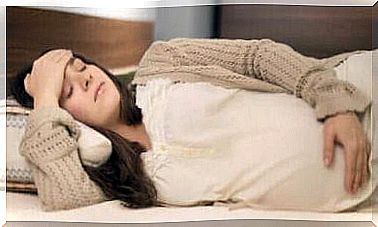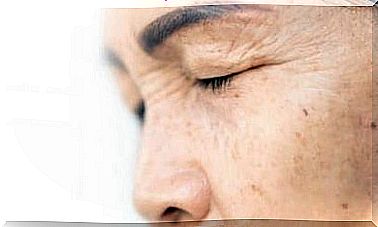4 Signs You’re Addicted To Shopping

Knowing if you’re addicted to shopping is a difficult process if you don’t know enough about the condition. In general, in addictions, the patient is often the last to realize what actions are the result of his behavior.
A shopping addiction is the compulsive form of buying goods and services. The most common purchases are typical products of consumerism that are of little use (and which, according to advertising, is a ‘necessity’).
It’s normal to shop for everyday logical needs. However, if you become addicted to it, you lose control of your shopping needs. It can also be frustrating if you can’t get what you want and then feel guilty about the actual purchase.
Although there is a modern consumer society with a tendency to spend money on the superfluous, not all people are prone to develop this behavior. People with a compulsive personality or with low self-esteem are more prone to it.
What does a shopping addict look like?

Anyone can be addicted to shopping, although some profiles are more likely to have the condition than others. In general, it is usually a young woman with easy access to the Internet.
According to global estimates in developed countries , women have this problem more often than men, in a higher percentage. They also spend more time choosing the product and not buying the first thing they see, which again is more common in men.
The age of these addicts usually ranges from 20 to 65 years. Older people, on the other hand, seem to reduce their purchasing behavior and are therefore slightly more economical.
The internet has revolutionized and exploded the phenomenon of shopping addiction. The ease of accessing virtual stores full of products, offers, promotions and free shipping has increased the compulsion.
While there are retail addicts in brick-and-mortar and traditional stores, online shopping is the norm for those with this condition. This also ensures a certain anonymity, avoiding the embarrassment of regularly visiting a particular place and getting caught.
Signs You’re Addicted to Shopping
There are a number of signs, signals, and behaviors that can warn you of a shopping addiction. Some of these signals and signs include:
- Having an uncontrollable desire to buy: A shopping addiction is a compulsion. Anyway, someone wants to have a new product as soon as possible. This results in anxiety symptoms that we can identify if we have them.
- Loss of Control: A hallmark of all addictions is the patient’s difficulty in controlling. If they can’t stop spending or buying a lot of items, then it shows that you are a shopping addict.
- The habit permeates other aspects of life: another sign of addiction is that it affects different areas of a person’s life. It doesn’t affect just one aspect. It also affects family, work and social life.
- Being frustrated with not being able to shop: When you become nervous, anxious and irritable because you couldn’t buy what you want, you are probably showing clear signs of a shopping addiction. It’s normal to be a little concerned about not getting what you wanted. However, if you worry too much, it could be pathological.
Treating a shopping addict

It is an addiction and therefore therapy requires a psychological approach. The use of medication may be necessary if there are very strong signs of anxiety or depression, where a psychiatrist may intervene with certain medications.
With regard to psychotherapy , techniques for relaxation and behavior modification are preferred. The goal is to increase control over momentum and avoid situations that can promote compulsive buying.
Sometimes patient and doctor discover the origin of the addiction through cognitive therapy. This requires the affected person to be aware of his or her condition and learn to keep track of what he or she spends and the feelings he or she goes through with each purchase.
In terms of behavior change, the involvement of third parties to assist with treatment is key. Shopaholics can also hire a purchasing counselor who manages their money and advises them on what matters are deemed necessary and unnecessary.
Being addicted to shopping is no joke
While it may seem like a joke (and most people spend money on non-essential items these days), we need to understand that shopping addiction is a psychological condition. It deserves attention and treatment as such.









